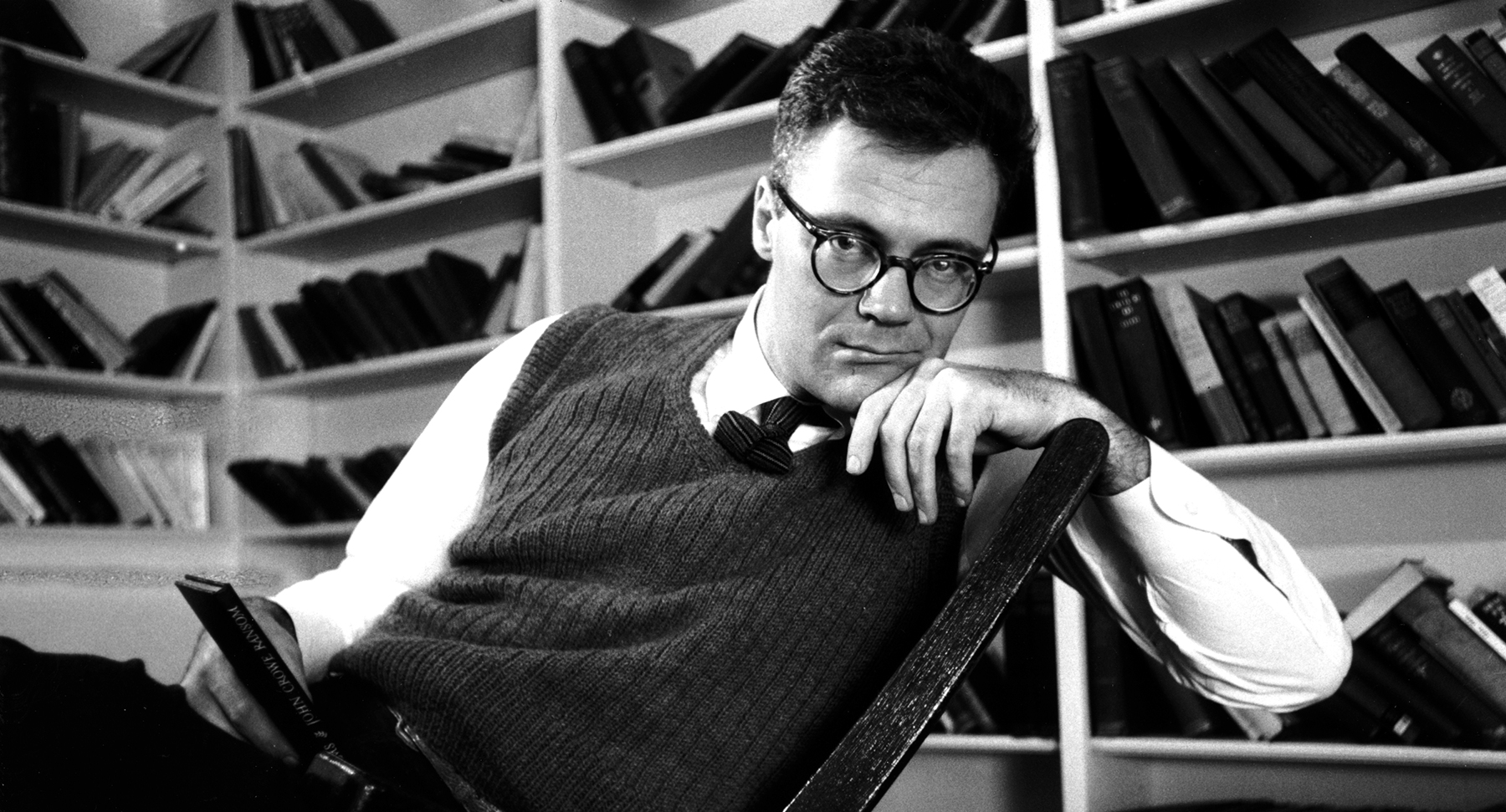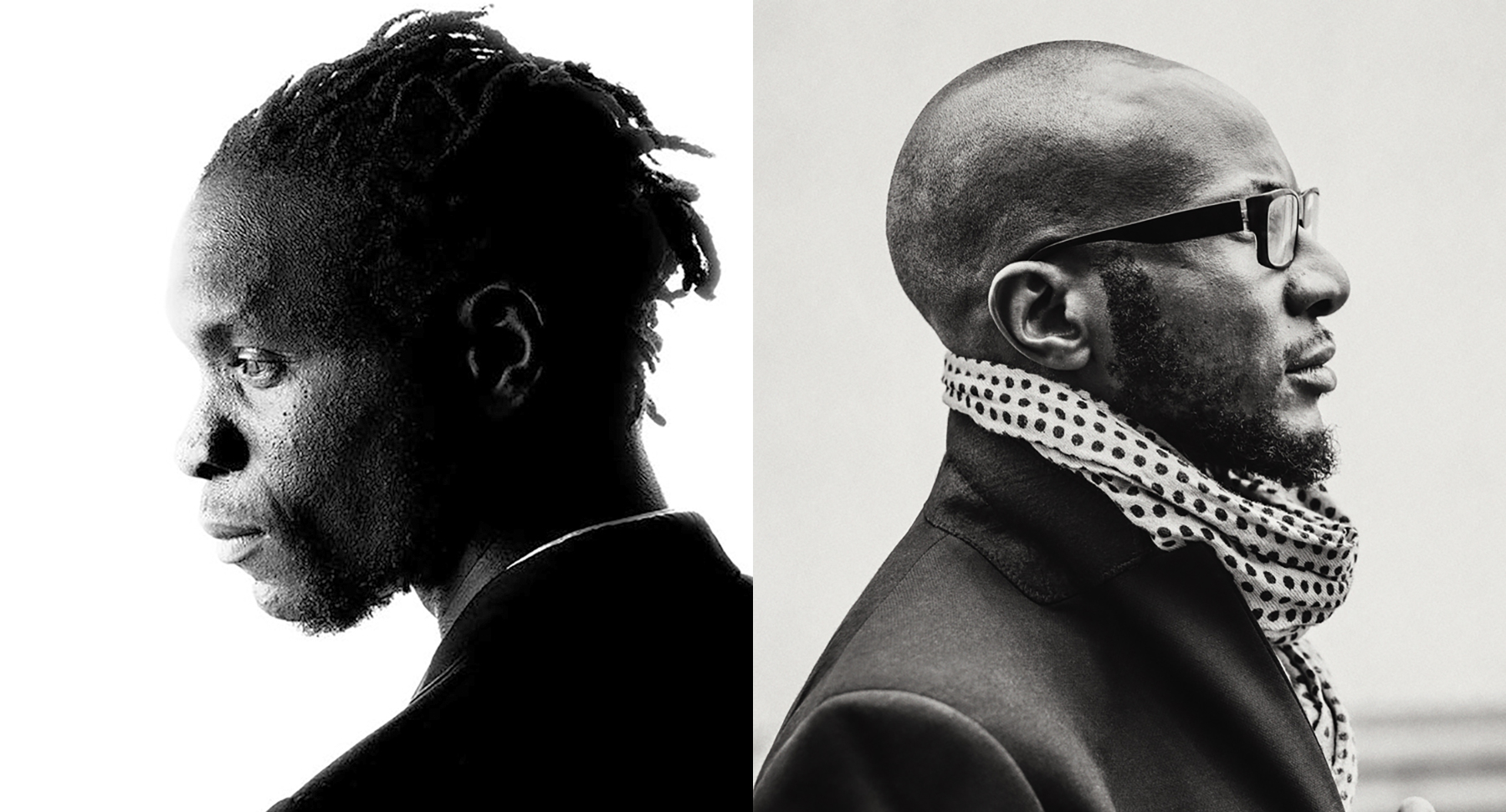My first experience with Robert Lowell’s poetry was a failure in reading comprehension. Breezing through a stack of poems I’d been assigned for a college class, I came to his “Man and Wife” and gave it my cursory attention. Its setup is not hard...
-
-
Ishion Hutchinson's poetry collection House of Lords and Commons was released to wide acclaim. All Things Considered said it was "ragged and fiercely beautiful;" The New Yorker praised Hutchinson's "exquisite" sounds: "clusters of consonants . . . and the vowels so...
-
Poet Ange Mlinko has been praised by The New Yorker for writing “intoxicating, cerebral poems [that] display a unique sense of humor and mystery.” She recently caught up with FSG’s Christopher Richards to discuss storytelling, advice for young poets, and just why aging for a poet is like tuberculosis for Keats. Her new collection, Marvelous Things Overheard, is now available. Christopher Richards: Marvelous Things Overheard feels like a journey through worlds real and unreal. How do you think migration informed these poems? I'm thinking particularly of your background as the child of immigrant parents, and your time living abroad in places like Morocco and Beirut. Ange Mlinko: What I'm really after is—to borrow Guy Davenport's phrase—a geography of the imagination. It's almost a reaction against all this migration—I'm compelled to subsume my autobiography (my parents' immigration to Brazil, then the U.S., after WWII; my travels abroad) within structures. Baudelaire called the poets our lighthouses, mapping this geography for us. Now, I know many modern poets have an allergy to classical references. But these aren't merely references. They're knowledge. For one thing, they provide an account for our relationship with the elemental world. For another, they give depth and resonance to our conception of time. You can't read the works of the past—Keats, Shakespeare et al.—without this knowledge. And if you can't imagine the past, if you have no entree to it, your imagination withers. And your pride groweth.
-
Averill Curdy on What Brought Her to Poetry Wayward: difficult to control or predict; shortened from obsolete Middle English awayward, “turned away.” I’ve kept a diary, more or less faithfully, for over 30 years. I’ve moved the expanding shelf of filled journals between various apartments in Seattle, and then to Texas, Missouri, Michigan, and finally to Chicago. I’ve copied favorite passages from my reading, noted the rare dream, and jotted down ideas, stray images, or lines for poems; I’ve paginated and indexed them. I mourned when my favorite notebook—an Exaclair sketchbook with 100 pages of 100-gram French paper that loved ink—was discontinued. Writing in one of these was happiness, small, but durable as the cup of coffee my husband makes for me each morning. But I never so much as glance at a single one of those diaries after writing the final words on its last page. The summer I turned 25 my mother was dying of breast cancer. Long after she died, I broke the middle joint of my thumb fielding an easy ground ball at second base during a softball game. The doctor bent my thumb backwards from the break, binding it into position so that the tendon and joint would knit themselves back together, then sent me home with some Tylenol. That night the pain reduced the little vanities and injuries, desire, and self-regard of my identity to kindling. The next day I was able to get a prescription for codeine and the cessation of that pain was an experience of delicious release from bondage. Afterwards, I was able to think of what my mother must have endured without complaint as the cancer colonized her bones and soft tissues.
-
Rowan Ricardo Phillips, whose debut book of poetry, The Ground, published this week, recently sat down with fellow FSG poet Lawrence Joseph. We're happy to share with you their remarkable discussion on the craft, translation, mythmaking, and--of course--Phillips' stunning new work. Lawrence Joseph: First of all, I want to say how much I like this book. In fact, I think it’s a masterpiece. Why the title The Ground?
-
This newly translated piece by Jorge Luis Borges appears in The FSG Book of Twentieth-Century Latin American Poetry. Ilan Stavans, the book's editor and the translator of "Borges and I," stopped by the FSG offices to record the piece in Spanish and English for us: [audio:https://fsgworkinprog.wpengine.com/wp-content/uploads/2011/05/borges-y-yo.mp3] The other one, Borges, is to whom things happen. I walk through Buenos Aires, stop, maybe a bit mechanically, to look at the arch of an entrance way and a grillwork door; I have news from Borges by mail or when I see his name in a list of professors or in a biographical dictionary. I like hourglasses, maps, 18th-century typography, the taste of coffee, and Stevenson’s prose; the other shares those preferences but with a vanity that turns them into an actor’s attributes. It would be an exaggeration to affirm that our relationship is hostile; I live, I let myself live, so that Borges can plot his literature and that literature justifies me. It doesn’t cost me anything to confess he has achieved a few valid pages, but those pages can’t save me, perhaps because what’s good no longer belongs to anyone, not even to the other, but to language and traditions.
-
Heavenly Questions, Gjertrud Schnackenberg's recently published sixth book of poems, is a remarkably moving and, perhaps surprisingly, exhilarating work, given that it is an elegy for the poet's late husband, the philosopher Robert Nozick, who died in 2002. In the exchange that follows, I ask Trude to talk about some of the sources and inspirations that inform this complex and deeply beautiful book. -Jonathan Galassi, President and Publisher of FSG
-
Daniel Swift is the author of Bomber County: The Poetry of a Lost Pilot's War. [caption id="attachment_494" align="alignright" width="120" caption="Photograph © by Deborah Copaken Kogan"][/caption] On October 30th, at a press conference in London, Julian Assange—the founder of Wikileaks—announced the leak of 391,832 secret military documents about the war in Iraq. This represents, he said, “the most comprehensive and detailed account of any war ever to have entered the public record.” Here are tortures, newly revealed; here are awful rates of civilian deaths (perhaps 66,000)—and all presented in clipped, oddly formal, occasionally redacted fragments (here, for example, is the record of a friendly-fire incident from January 2008: “CAV REPORTS THAT SMALL ARMS FIRE ENSUED BECAUSE OF A DISAGREEMENT BETWEEN CLC AND IA. NO ENEMY INVOLVEMENT”).
-
As this glimpse at the proofs of my versions of Leopardi’s Canti suggests, a translation, like an original poem, is never finished, only abandoned. And that remains true even after the book is published—I’ve already started collected "improvements" for a future printing. There’s usually a way to say what needs to be said more concisely, more pithily, more beautifully. That’s why I’ve found translation over the years to have been an incredible education in writing.


